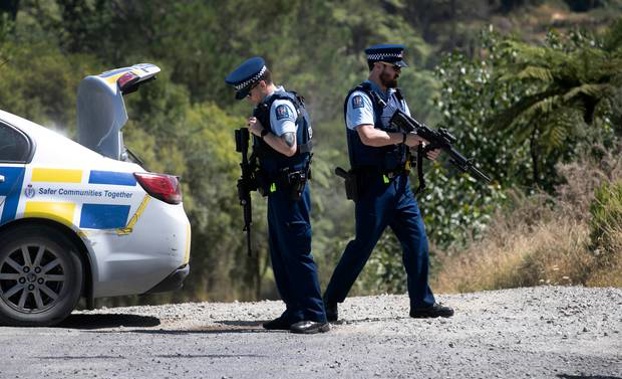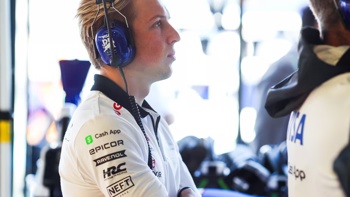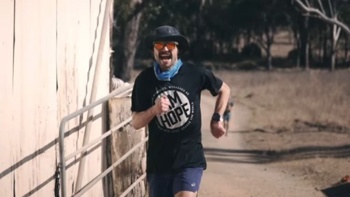
A surge in gang violence in Auckland has Opposition parties eyeing up strict anti-bikie laws in Australia to see if something similar could be introduced in New Zealand.
A tit-for-tat gang war between the Tribesmen and Killer Beez gangs has had Aucklanders on edge for weeks, following a number of brazen shootings across the city.
National Party police spokesperson Mark Mitchell said tough anti-bikie laws introduced in Australia should be considered here.
In some Australian jurisdictions, anti-consorting laws mean gang members gathering together can be prosecuted. In Western Australia, they face up to five years in prison.
Since Queensland introduced these laws following a brawl outside a Gold Coast restaurant in 2013, it's against the law for three or more known criminals to meet in public. Club members in the state also can't wear any insignia in public — including patches, T-shirts, or rings.
In Western Australia, facial tattoos can be considered gang insignia.
Mitchell, a former police officer, said the Australian approach "sounds like a good way of trying to dismantle gangs from the inside out".
"We're looking around the world, including Australia, to see if there's been any new legislation to deal with the gangs. We want to see what's working, what's not," he said.
"We are looking at different options ourselves at the moment and you will find in the coming months we will be making some announcements in relation to that."
/cloudfront-ap-southeast-2.images.arcpublishing.com/nzme/A6ZROOIGPIWFBM6MPW7PFBAZ2E.jpg)
National Party Police spokesperson Mark Mitchell. Photo / Mark Mitchell
The Act Party is also looking abroad for ideas.
Justice spokesperson Nicole McKee said the party's Criminal Proceeds Bill, which was rejected by Labour, would have given police the tools to freeze assets of gang members upon finding an illegal firearm when they conduct a raid.
But a second bill is live.
The Gang Control Orders Bill is essentially a watered-down version of Australia's anti-consorting laws.
According to Mark Lauchs, Queensland University of Technology associate professor and an expert in outlaw motorcycle gangs, the anti-bikie laws have made life tougher for the gangs.
"It provides police the means of supervision that can lead to lower crime. It makes it harder for shootings to happen. Because it's harder for them to plan," Lauchs said.
"Association also means texting ... In practice, it's very difficult for them to organise anything. And shootings tend to be organised when you're involved in clubs."
In Australia, the laws have also brought with them greater public confidence.
"Here, you'd once drive to the Gold Coast and you'd have 40 or 50 guys on their bikes riding beside you. That's completely gone," Lauchs said.
"It's wrong to say all the bikies left. But the bikies who always appeared in the news, on criminal charges, the ones you saw in court cases, they left.
"Whereas in Melbourne and Sydney, there were drive-by shootings, bombings, arson — that's the displacement. If I want to operate as a crook, I've gotta go somewhere else."
Introducing similar legislation in New Zealand would not be without its challenges, Lauchs added.
"Australia's exported the Comancheros, Rebels and Banditos to New Zealand, and then New Zealand will export them to the Pacific.
"Once members join, go to prison, and then go home to their Pacific island, they'll take the club with them.
"Unintended consequences of legislation to protect us means we're actually creating international networks for the clubs."
Prime Minister Jacinda Ardern would not commit to similar law changes in New Zealand.
"I'm not going to rule anything out yet," she told Radio New Zealand today. "We are constantly looking at our landscape to see what might make a difference. But again, let's keep in mind, some of these shootings don't require large gatherings to be a problem. So let's not be too narrow in our focus."
She said there was an escalation "between two gangs right now" and police were focused on de-escalation.
"When it comes to law changes, we are always very focused on what works. We don't need politics here. We don't need tokenistic changes. We need things that work.
"We know that some of the things that will make a difference are those we are already doing. We've had 500 firearm seizures this year... getting firearms registered in New Zealand - even Chris Cahill from the Police Association says that will be one of the things that make the biggest difference. We're also doing firearm prevention orders. We are constantly looking at the landscape.
"We're looking at a couple of other measures in the New Zealand context. We're not in a position to talk about this just yet but we are looking at some other possibilities but my lens will always be 'will it make a difference?'"
/cloudfront-ap-southeast-2.images.arcpublishing.com/nzme/UIYIATIQBAWVEKN24H4VE7O4Z4.jpg)
Police Minister Poto Williams. Photo / Mark Mitchell
Police Minister Poto Williams recently met with her Australian counterparts, with both parties acknowledging "that one of the effective measures to tackle gangs and organised crime is to fund more police".
"That's why this Government has made a record $562 million investment into police, committed to a population ratio, deployed 1400 more police officers, and doubled the organised crime staff within Police since 2017," Williams said.
Budget 2022 included $94m to target gangs and organised crime.
Former police negotiator Lance Burdett said police needed to crack down on gangs.
Speaking to AM this morning, he said anti-consorting laws in Australia worked. "They crack down on them and it works," he said.
Gang members could sometimes be arrested for as little as jay-walking.
Take your Radio, Podcasts and Music with you









